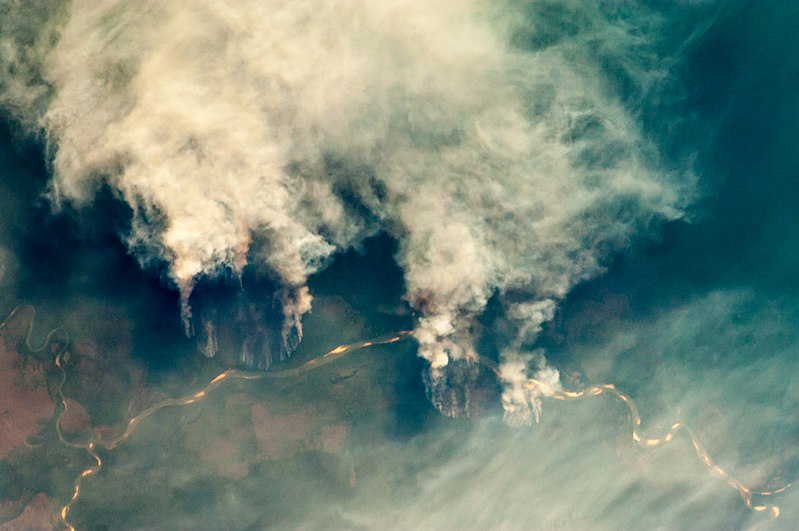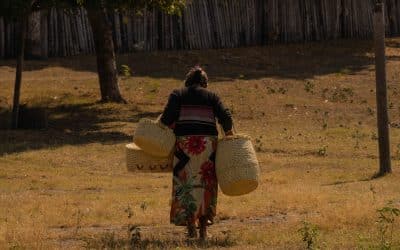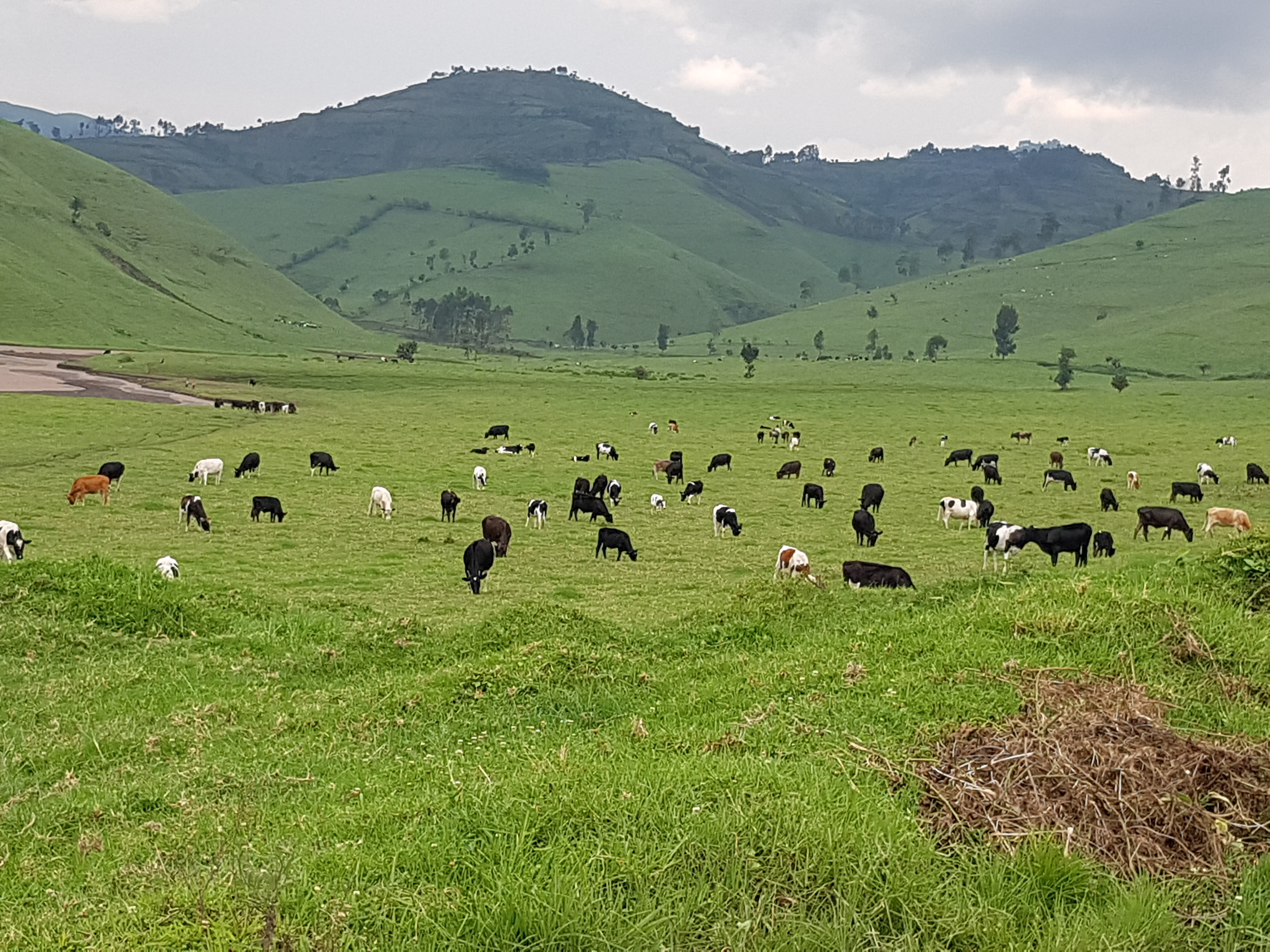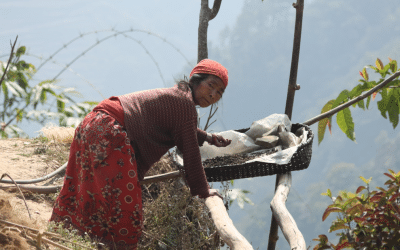Par Isis Alvarez (Coalition mondiale des forêts) et Mia MacDonald (Brighter Green)
Les incendies dans les forêts amazoniennes qui ont choqué le monde ont été éteints par les pluies saisonnières et les efforts d’urgence déployés par les pompiers. Toutefois, la réelle cause de la plupart des flammes n’a pas été éteinte puisque de nombreux incendies étaient destinés à défricher les terres afin de planter du soja ou créer des paturâges. Ces derniers sont utilisés dans le monde entier, mais plus précisément en Europe, en Chine, aux États-Unis, dans le but de nourrir des milliards de vaches, de cochons, de poulets et plus. Les incendies en Amazonie ont lancé un message troublant: notre désir de consommer de la viande et des produits laitiers est si fort que nous sommes prêts à hypothéquer l’avenir de la planète pour le satisfaire.
Continuez à lire en anglais…
This year’s World Food Day (October 16) calls for action to ensure that healthy and sustainable diets are affordable and accessible to all. Recent scientific reports clearly recognize the need for a deep transformation in our food systems (see for example here, here, here and here), given their enormous impacts on human and planetary health. The Intergovernmental Panel on Climate Change (IPCC) has made it clear that “a substantial reduction of [agriculture-related] impacts would only be possible with a substantial worldwide diet change, away from animal products”.
So it seems a good time to ask: how is it that most global financial and political support for food production flows to an industrial model that focuses on quantity rather than quality, despite the current climate and biodiversity crises? And why is it that so much public finance is propping up a global system that distributes the food it produces so unevenly and inequitably that some parts of the world suffer from chronic hunger while others face a public health crisis due to obesity and micro-nutrient deficiencies as a whole?
Facts, like fires, can’t remain hidden for long. Case studies compiled recently by the Global Forest Coalition (GFC) on Argentina, Brazil, Chile, Mexico, Paraguay and the Democratic Republic of the Congo (DRC) underline how big agribusiness is given free-reign over land and the lives of peasant farmers and Indigenous Peoples. These studies help to deconstruct the myth that large-scale, industrial agriculture is ‘feeding the world’, and that it is compatible with other more sustainable and equitable forms of food production. Big agribusiness has captured international and national-level agricultural and trade policy-making, which continue to push this unsustainable agro-industrial model by incentivizing and subsidizing it.
In the Amazon, it would be too easy to only assign blame to the farmers who set the fires, or the soy and cattle industry under which they are contracted, or agribusiness and government actions that privilege export markets for soybeans and beef over maintaining the planet’s ecosystems. All these factors are to blame. But what is ultimately more destructive is the policy incoherence still found at the heart of national and global governance.
For example, the EU–Mercosur trade deal that some G-7 members threatened to sink if Brazilian president Jair Bolsonaro didn’t move to extinguish the flames had at its center selling cars (to Latin America) in exchange for beef (to Europe)—one driver of climate change for another. The trade war between China and the U.S. is encouraging China, the world’s largest producer and consumer of pork, to source more soy from Latin America, providing another spark to forest clearing. In Bolivia, the government’s focus on increasing agricultural production and exporting beef to China provided kindling for the fires that devastated the Chiquitania Forest, one of the last remaining patches of dry forest in the world.
Government policies must end support for large-scale cattle ranching and animal feed monocultures so that more varied, healthier and sustainable diets can become a global reality for all. In addition, we should massively expand the variety and diversity of grains and other edible plants in integrated systems that offer ubiquitous, affordable whole foods to everyone. An alternative to industrial livestock production can also be found within pastoralism. Across the Global South, pastoralist and nomad communities have for centuries provided nourishment (milk, meat, hide and fibre) to their communities and, also importantly, have contributed to the (re)generation of complex agro-ecological systems, biodiversity and culture. Challenging the industrial livestock model also necessitates that we recognize the knowledge systems that underlie it and the varied ways in which pastoralism and nomadism continue to creatively undermine the extractivist logic and incompatibility embodied in the industrial model.
We should also be focused on restoration—both of forests and biodiversity and of regenerative agricultural practices. This will require consuming fewer animal-based foods and more varied plant-based meals, as well as supporting rather than marginalizing peasant and small-scale agriculture. In Paraguay for example, the National Federation of Peasants prioritizes the conservation of “agrobiodiversity” in recognition of the fact that a huge diversity of animals, plants and microorganisms are necessary to sustain the key functions of the agroecosystem and therefore food production. This ethos is the exact opposite of an industrial food system that replaces diverse forests with monocultures.
Further intensification of a model that ignores traditional livestock farming and agro-ecological systems will only mean deforestation, biodiversity loss, violations of human rights and animal welfare and the concentration of land as well as other critical natural resources in the hands of a few privileged minority.
So how do we prepare for the fires next time? By putting in place measures now to forestall them. We need to be honest about the deep flaws in the current food system and work across sectors, regions and biomes to change it. If this seems too radical now, then the status quo will soon enough compel us to make less palatable and more catastrophic choices that won’t be choices at all.
Isis Alvarez coordinates the Global Forest Coalition’s campaign against unsustainable livestock production.
Mia MacDonald is the executive director of action tank Brighter Green, which works to raise awareness of and encourage policy action on issues that span the environment, animals, and sustainability.




